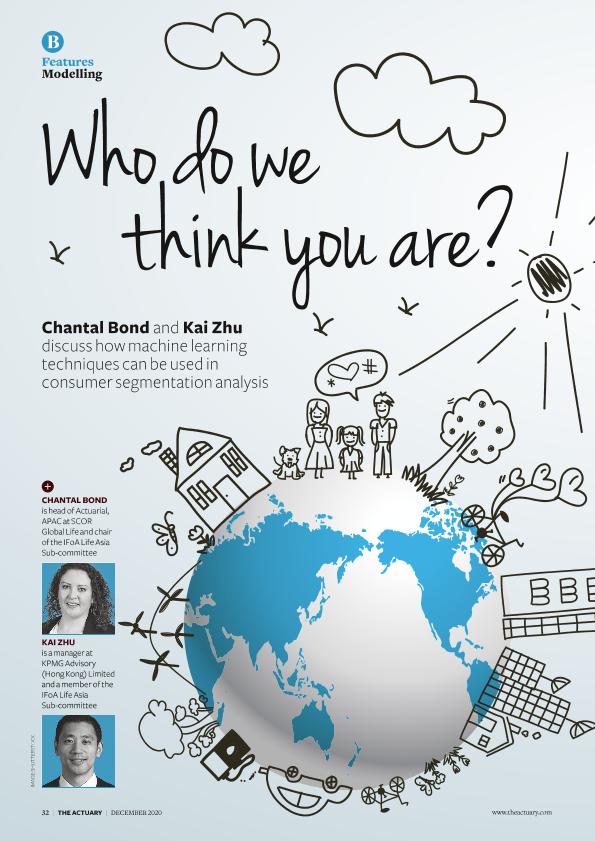Who do we think you are?

Contenido multimedia no disponible por derechos de autor o por acceso restringido. Contacte con la institución para más información.
| Tag | 1 | 2 | Value |
|---|---|---|---|
| LDR | 00000cab a2200000 4500 | ||
| 001 | MAP20200039662 | ||
| 003 | MAP | ||
| 005 | 20220911211057.0 | ||
| 008 | 201221e20201201gbr|||p |0|||b|eng d | ||
| 040 | $aMAP$bspa$dMAP | ||
| 100 | $0MAPA20200024149$aBond, Chantal | ||
| 245 | 1 | 0 | $aWho do we think you are?$cChantal Bond, Kai Zhu |
| 520 | $aMarriage and birth rates continue to decline worldwide, and home ownership rates have plummeted in a number of developed economies. A traditional life insurance consumer segmentation approach, which seeks to focus on the socioeconomic and demographic drivers for life events that lead to insurance purchases, will begin to lose its relevance in this context. At the same time, insurers have access to a rapidly growing pool of data about consumers but few have managed to really get to grips with it. How can this data be used to enhance understanding of consumer needs and therefore gain insights that lead to better outcomes for insurers and customers? We will demonstrate a data analytics approach to consumer segmentation that uses machine learning techniques such as k-mean clustering and random forest classification, which can be applied to a variety of data sources. In this example, we will use data from a consumer needs survey commissioned by the IFoA Life Asia Sub-committee to identify and describe three distinct consumer segments based on their responses to the survey questions. | ||
| 650 | 4 | $0MAPA20080624019$aComportamiento del consumidor | |
| 650 | 4 | $0MAPA20170005476$aMachine learning | |
| 650 | 4 | $0MAPA20080578848$aAnálisis de datos | |
| 650 | 4 | $0MAPA20080550592$aEncuestas | |
| 700 | 1 | $0MAPA20200024170$aZhu, Kai | |
| 773 | 0 | $wMAP20200013259$tThe Actuary : the magazine of the Institute & Faculty of Actuaries$dLondon : Redactive Publishing, 2019-$g01/12/2020 Número 11 - diciembre 2020 , p. 32-34 |

